What To Look For In A Decent Multivitamin
7 minutes read
Whether you’re on a health kick or just searching for a new health supplement, there are many factors to consider when choosing the right multivitamins.
Many wonder whether those tiny multivitamin tablets they take daily are actually doing anything to better their health — or whether it’s just a total waste of money altogether. So to ensure our multivitamins are providing maximum health benefits, we spoke to nutritionist Sarah-Jane Hall to find out exactly what it is we should be looking for when choosing our vitamins.
What are multivitamins?
In short, a multivitamin is a supplement packed with various minerals, vitamins and nutrients. Their main aim is to maintain health and wellness. While general multivitamins help in every area, there are also multivitamins that target specific health/beauty concerns (such as vitamins for hair, vitamins for energy, etc.)
But what should we look out for when choosing an excellent all-around multivitamin? “When it comes to choosing a multivitamin, it’s best to look for ones that are natural and avoid ones with lots of synthetic ingredients, binders and bulking agents,” says Hall, nutritionist at Doctor Seaweed. “A good way to gauge this is the supplement format — capsules are often a better option than tablets, as tablets need a number of added ingredients to bind them together and allow them to keep their shape. Always make sure to read the ingredient list!” she adds.
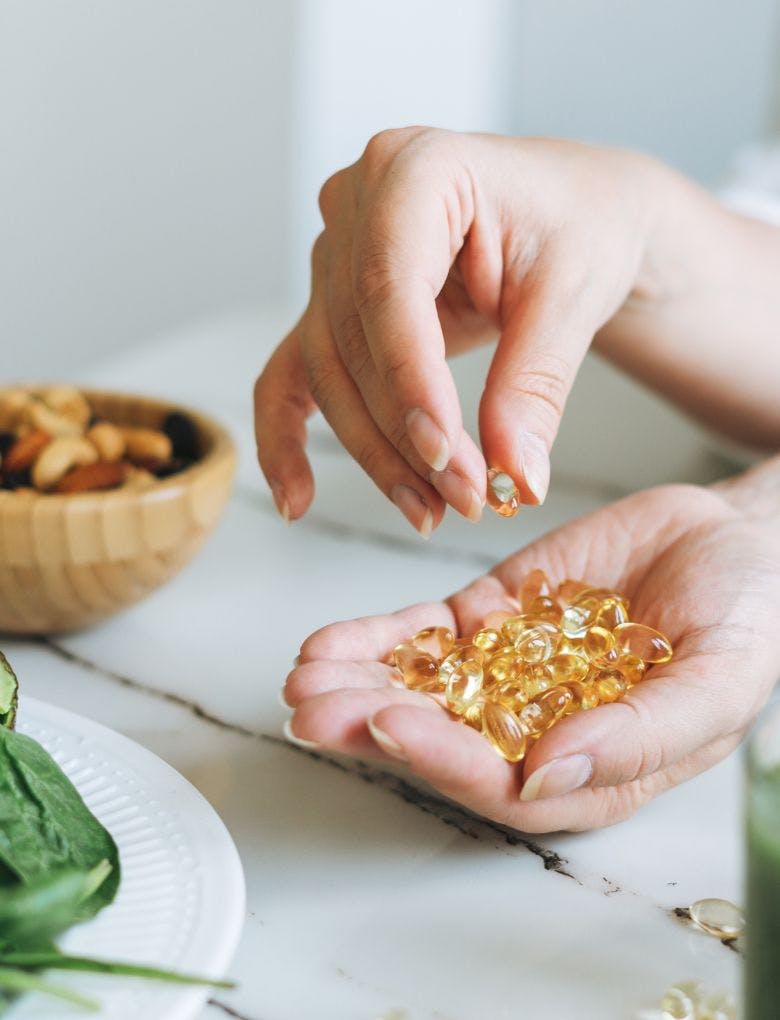
What types of multivitamins are available to buy?
Whatever your health or beauty concern — rest assured there is usually a supplement that can aid you with improving your situation.
Multivitamins for hair growth
Did you know that a multivitamin could help you to achieve longer, more luscious strands? When looking at vitamins for hair, remember to look for ingredients such as zinc, biotin, iron and vitamin B, as they all work in tandem to maximise hair growth and health. Try the Viviscal Hair Growth Programme, £25.99 a hair vitamin course that will provide everything you need to set a good foundation for healthy hair growth. Or try the Hair Gain Gummies, £29.99, they may taste like Haribo, but they do have some good research behind them.
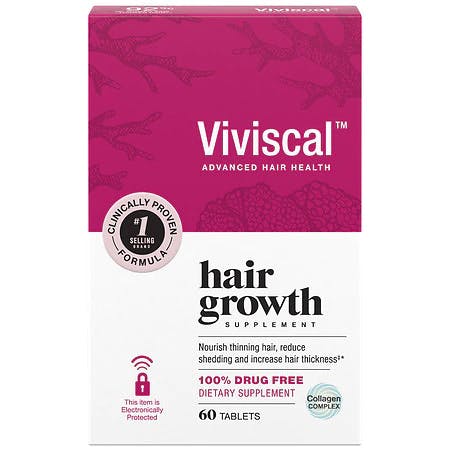
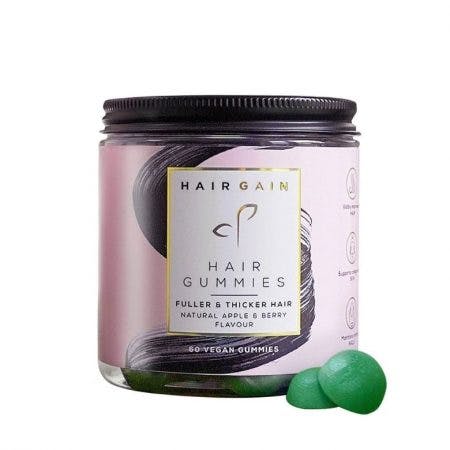
Multivitamins for skin and nails
Collagen and biotin-based multivitamins are the perfect options if you are looking to improve your overall skin and nail health. But that’s not all. “Nutrients that support the thyroid are particularly beneficial for improving skin,” says Hall. “The thyroid regulates metabolism, which directly impacts cellular renewal. Iodine, selenium and zinc all support thyroid function, so look out for them if you choose a supplement to improve hair, skin and nails.” Perfectil Plus Skin Extra Support Tablets, £18.20 contain an abundance of skin and nail-loving ingredients.
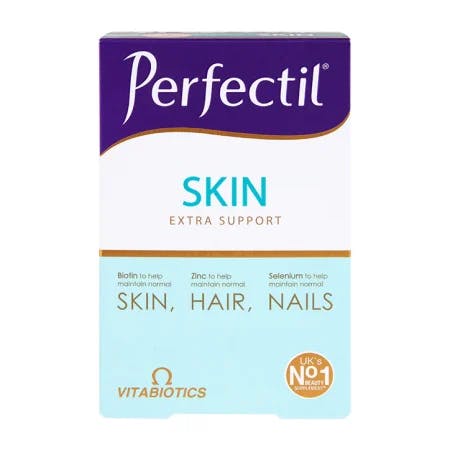
Read: Everything You Need To Boost Your Collagen
Multivitamins for men
Although a healthy balanced diet should cover most of a man’s nutritional needs, a multivitamin can help target and prevent specific male health issues such as prostate and reproductive health. They can also play a massive part in maintaining normal testosterone and energy levels. Look for a multivitamin that contains ingredients like zinc, vitamin D, magnesium and vitamin B12 — such as Together Health Men’s Multi, £9.89.
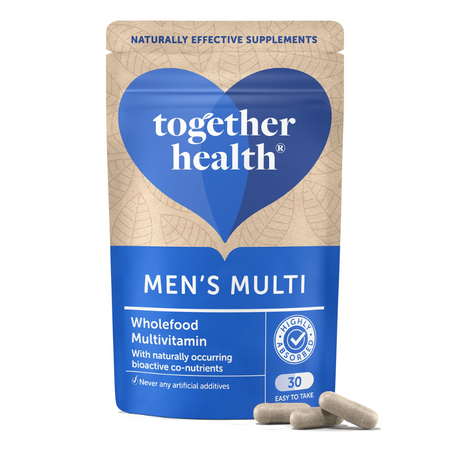
Multivitamins for women
Wondering what the best multivitamin for women is? Keep in mind that there are several vitamins that women need to stay topped up with in order to maintain optimum health and can depend on age, lifestyle and medical conditions. Generally, iodine, iron and vitamin D are three good nutrients that aid with reproductive and hormonal health, as well as folate, which is essential for producing healthy red blood cells. When approaching and during menopause, it’s vital to keep hormones in balance with the help of a multivitamin such as Doctor Seaweed’s Weed & Wonderful Menopause+, £29.95.
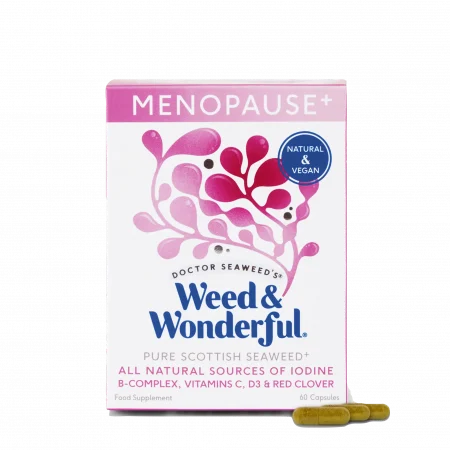
Are multivitamins really beneficial?
Multivitamins can be a great way to top up your diet with any vitamins or minerals you feel you may be lacking. “What nutrients you need from your multivitamin, of course, depends on your diet, but there are certain nutrients that we know most of the population are deficient in,” says Sarah-Jane.
“For example, over two-thirds of women are deficient in iodine, an essential nutrient throughout life. Vitamin D is another nutrient we as a population don’t get enough of, particularly among men. It’s difficult to get iodine and vitamin D from diet alone, so it’s often beneficial to supplement these nutrients. It’s a good idea for everybody to consider supplementing with omega-3 DHA, as it’s not necessarily sustainable or suitable for everybody to eat oily fish regularly. Plant-based sources of omega-3 from algae are more sustainable and are suitable for those following a vegan diet.”
Food vs supplements for nutrient intake
Wondering whether you can ditch healthy food in favour of a multivitamin? According to Hall, it’s extremely important to still make sure you are receiving vitamins and minerals from your daily diet. “Multivitamins can be a great way of providing you with essential nutrients that you might be missing in your diet,” she says. “However, it’s important to recognise that synthetic nutrients are not received and utilised by your body in the same way as natural/whole food nutrients. There’s research to evidence this, so always opt for naturally sourced nutrients.”
Adding: “Multivitamins can be very beneficial, but it’s important to look at your diet or speak to a nutritionist to consider what nutrients you are likely missing, and select supplements accordingly rather than just choosing a generic multivitamin.”
So, in short — multivitamins should not be relied upon to substitute eating whole foods. A healthy, balanced food-based diet with lots of variety is best to ensure you’re getting all the nutrients you need — but you can supplement where you are lacking, or if you want to address specific health needs.
FAQs
Is it good to take a multivitamin every day?
As long as you’re not substituting food with your multivitamin, it is generally beneficial to your health to take a multivitamin every day.
What are multivitamins good for?
Multivitamins are good for topping up the nutrients you may feel you are running low on. So, if your iron or vitamin D levels are low, a multivitamin can help bring some more balance. You will also find many vitamins for hair growth, as well as skin and nail vitamins that target beauty concerns such as hair loss and lacklustre skin.
Is taking a multivitamin really necessary?
Taking a multivitamin is not essential, but it can complement your diet by providing more nutrients and minerals that you may not be consuming enough of otherwise.
If you’re unsure and don’t know what vitamins you are lacking in and need guidance. Try a qualified nutritionist like menopause nutritionist Emma Bardwell, herbalist & naturopath Jenny di Pierro or nutritional therapist Eve Kalinik.
Or head over to Wild Nutrition, a brand founded by Henrietta Norton,
They use a ‘food grown method’ for the supplements, meaning a paste is made of the highest-quality whole food. This results in a nutrient-rich substance that the body recognises and happily absorbs. In comparison to many products on the market, the Food-Grown® supplements contain no unnecessary preservatives, colourants, fillers, or binding agents. They are also free from the aggressive doses of synthetic or isolated ingredients often found in traditional, compressed powder tablets, which often pass through the body, unable to be used. Not only are Food-Grown® nutrients better absorbed by the body, but they’re also kinder to the digestive system too.
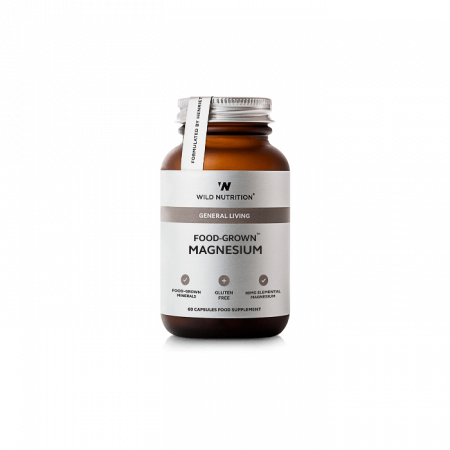
She says, “We aim to deliver ethically sourced, endlessly researched and intelligently formulated supplements, where every single ingredient has been considered.”
If you just want to ask some questions or talk to an expert about more of your health needs, you can book a free 15-minute video call with one of the Wild Nutrition Nutritionists.
Or, take this online quiz to help determine the right supplements for your age, lifestyle and needs: What supplements should I take?
Last word: Always consult your medical practitioner when looking at adding vitamins into your daily routine, as some may impact existing medical conditions or affect medications.
Sign up for our newsletter
We will keep you in the loop for special offers, exclusive gifts and product news.

